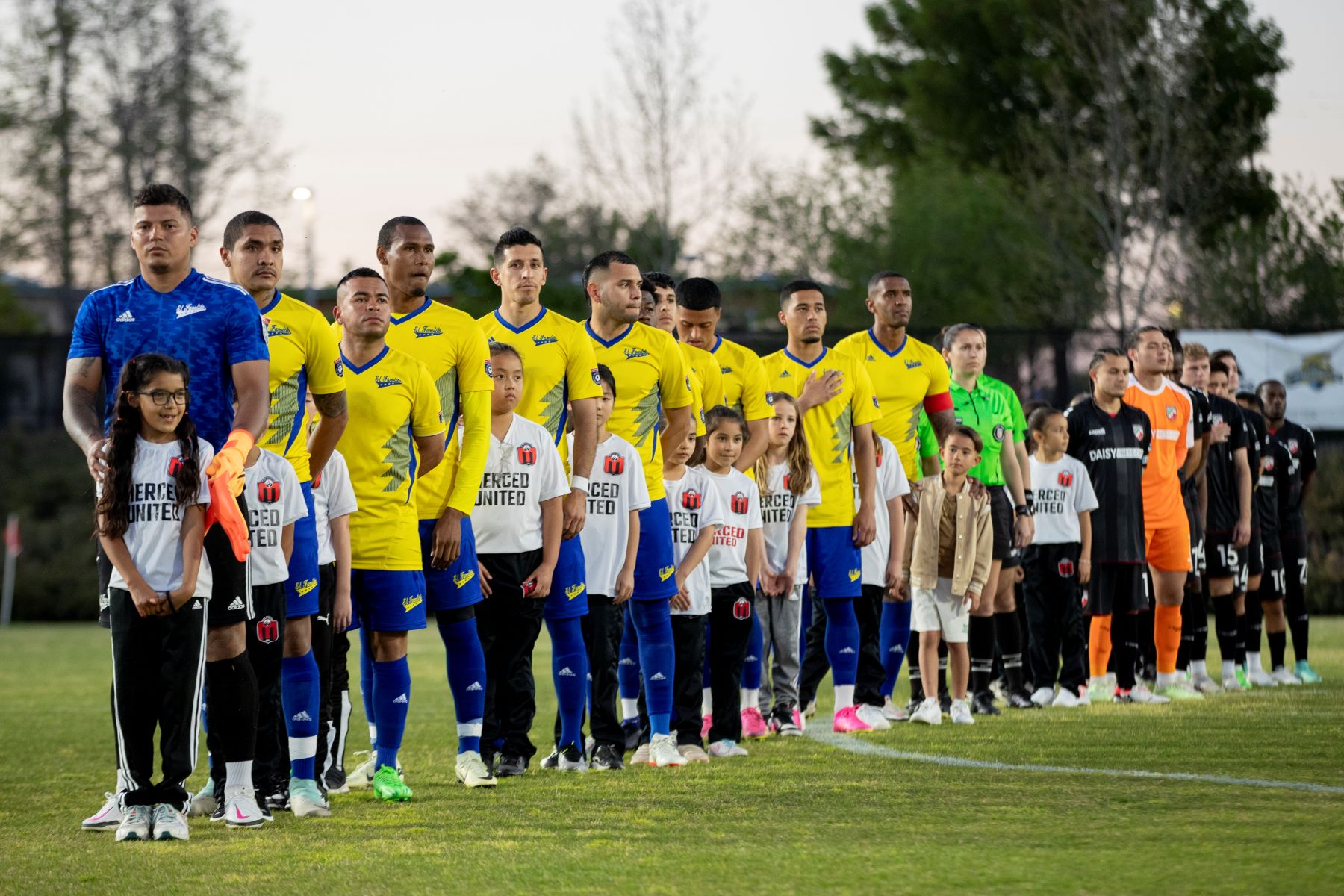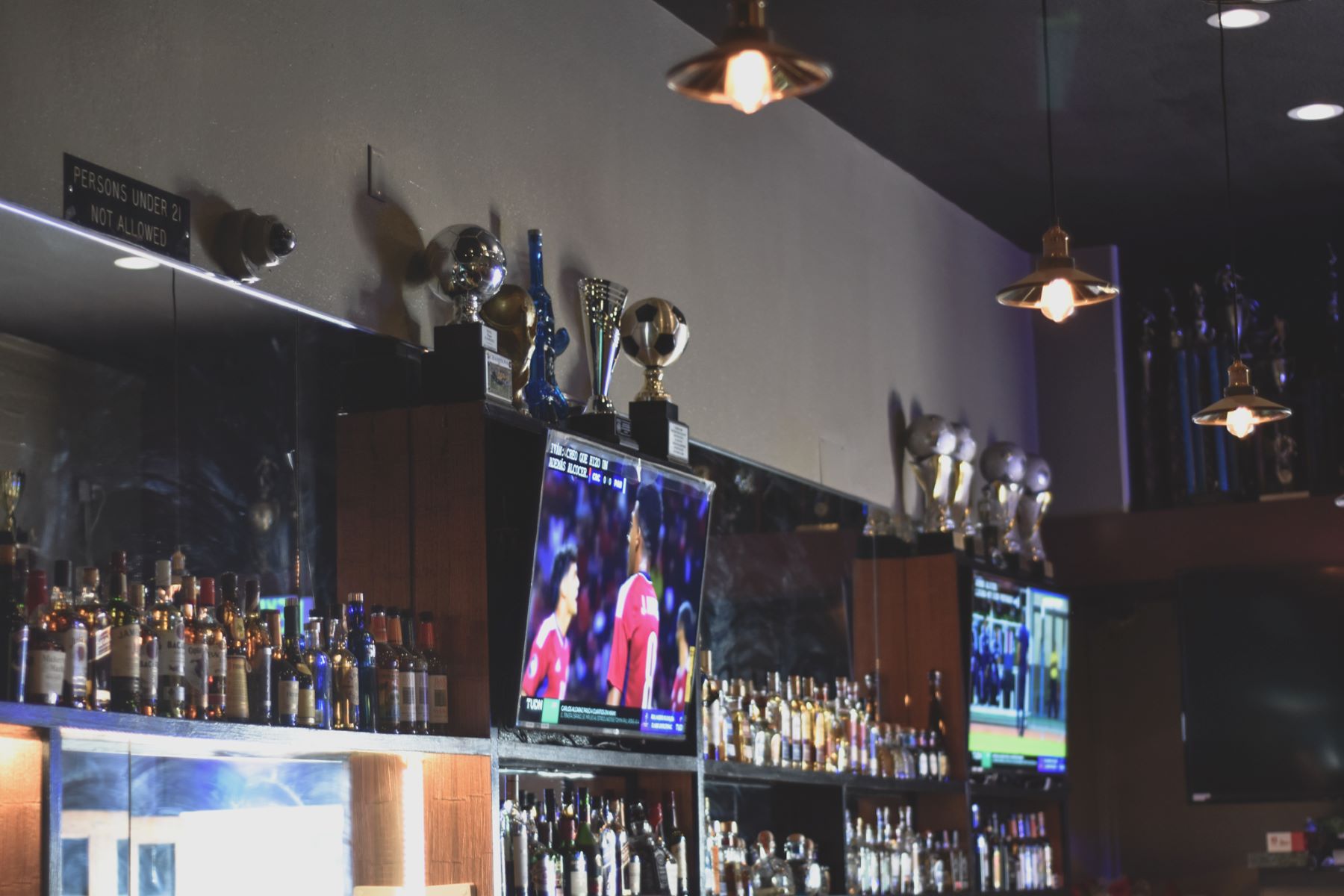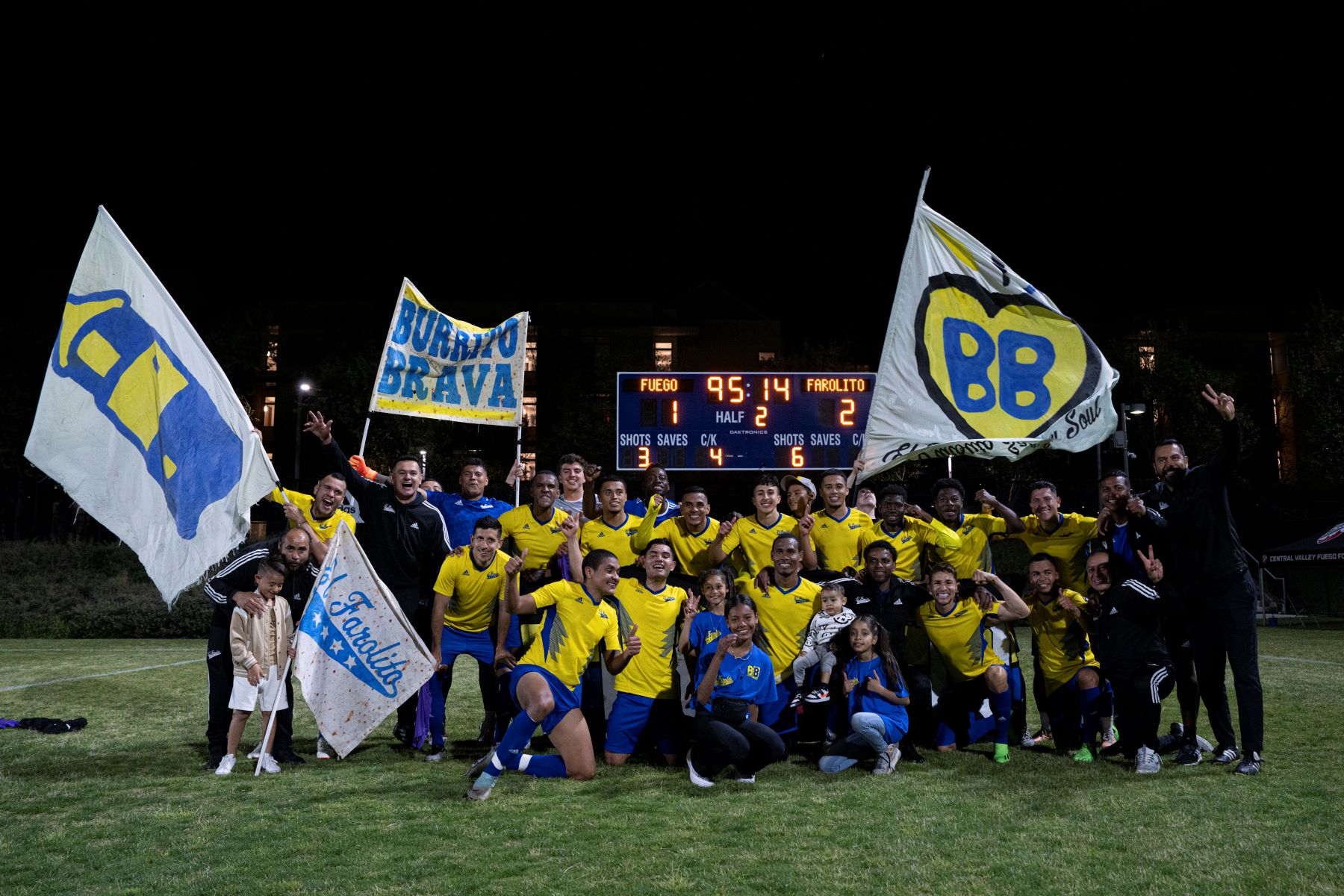El Farolito is the Spice of the Open Cup
San Francisco’s El Farolito – Open Cup champions in 1993 and the current edition’s amateur cinderellas from the NPSL – is built on family, food and deep roots in the city’s Mission District.

What is El Farolito?
Where to begin. A chain of inexpensive family-run Mexican taquerias in the Bay Area, numbering 12 at last count? Yes. Amateur darlings of this 2024 Open Cup and, somehow, the tournament’s 1993 champions? Uh huh.
El Farolito, at the risk of using an overplayed phrase, is more than a club.
“You try to get your best team out there,” said second-generation restaurateur Santiago Lopez, who’s also the current El Farolito coach and son of the business and team’s late founder Salvador Don Chava Lopez. “If it’s for soccer, or if it's a person that’s gonna be working as a cashier or the grill at the taqueria.”
El Farolito aren’t the first amateurs or semi-pros to have a local restaurant’s name splashed across their shirt. But there’s more going on here. The club is a magnet for the Bay Area’s latino community and its eateries draw people from all walks of life for work, nourishment and play. It’s a family, by any definition you use, and you hear that word often in the orbit of the club.
“To me this is more than just a team, it’s a big family,” said 28-year-old forward Dembor Benson (shortened mercifully down from his birth name of Dembor Onasis Bengtson Bodden).
Brother of the former Honduran national team ace Jerry Bengtson, he scored both goals in a comeback win against pro side Central Valley Fuego in the last round of the 2024 Open Cup. The game was played on the road, against a full professional side coached by a former U.S. Men’s National Team legend Jermaine Jones. But El Farolito’s fans – led by the perfectly named Burrito Brava supporters group – were noisier than the home team’s.


“I’m so happy and proud to be a part of this,” added Benson, who celebrated with his baby on the touchline after scoring the equalizer. “It’s not easy to get on a bus and travel five hours to beat such a tough team. It’s been nothing but joy for me since this team [El Farolito] opened its doors to me.”
How did this delicious union of football and food and family take shape? It’s best we start at the beginning – so step inside the original El Farolito Bar on 24th and Mission, let its door swing closed behind you. Take up a seat at the bar.
In a minute your eyes will adjust to the dim light. So order a beer and stay a while. You’re in the presence of American soccer history, the birthplace of El Farolito.
Tilt your head back and you’ll see, up above the liquor bottles, a trophy in the shape of a soccer ball. It’s the 1993 Open Cup, won by El Farolito in the days before Major League Soccer’s flash and massive growth and after the old NASL and its own flash and massive growth (and eventual collapse).
This was a time, before the hosting of the 1994 World Cup, when the game in this country was sustained by ethnic clubs headquartered in bars, just like this one, or social clubs. Gathering up after the game to share a drink and some food was as important as the result – more so in lean times.
“Soccer has been a part of our lives every day,” said club manager Irene Lopez, sister of Santiago and daughter of Don Chava. “Every year is special.”
Her father opened the bar in 1983. It was a much different San Francisco than the one of today, and the Mission District was the heart of its latino community. Soon after, the tiny taqueria started churning out al pastor and beef tongue next door. The original taqueria, most often described as “no frills” became a last-stop for late night revelers with its 2am closing time and its Super Burrito, “the most life-changing Burrito in America” according to Esquire Magazine in 2013, among the signature dishes.


It was an all-cash-business with no tables, same as it is today. The line is always long, but it moves fast. While he wasn’t helping perfect the Bay Area’s signature mission style burrito, which Eater recently described as “the size of a neck pillow,” Don Chava was obsessing about the game of football in his native Mexico. He was slowly hatching a scheme to start a team with title aims much like his beloved Cruz Azul.
Two years after serving its first manhole cover-sized Quesadilla Suiza, El Farolito – with a lighthouse-themed crest and yellow and blue jerseys – started turning out on San Francisco’s soccer fields like the legendary Boxer Stadium. Inside five years they were in the top division of the nationally recognized SFSFL (you might be surprised to know that promotion and relegation is alive and well in most of the amateur soccer leagues in this country) and they won that first division title in 1992.
The Farolito Bar remained the home base – the family table. The players would meet up there before away games. And Don Chava, after the games, would lay out massive spreads of delights that spoke to his players of homes both old and new.
“He never thought about the results,” Santiago said of his father, scion of San Francisco’s first family of food and football. “He just did what he thought would be fun and never really wanted any attention.”


Assembling the best players in the area – the likes of Colombian Jose Angulo and former Atlas goalkeeper, Guillermo “Grillo” Valadez and Samuel “Abuelo” Cid del Prado – could only have been fun. And in 1993, it was time for Don Chava to take his party to the national stage and the historic Open Cup.
The tournament, and soccer in America, was different then. The decade between 1984 and 1994 were dark days. It was these very ethnic clubs, like El Farolito, that made sure the sport stayed alive and vibrant. The dreams and ingenuity of folks like Don Chava kept the entire framework from crumbling.
El Farolito – known that Cup-winning year for reasons unclear as CD Mexico – met another ethnic superpower in the 1993 Semifinal: The Milwaukee Bavarians. “They were so good, really quick on the ball,” remembered Bob Gansler, son of the former USMNT coach of the same name, who played for that Bavs team. “We didn’t have our best day, and they [El Farolito] attacked us in numbers.”
While that Semifinal required extra-time and two late goals from the outstanding Angulo, the Final was a cakewalk. El Farolito beat the United German-Hungarians of Pennsylvania 5-0 at Kuntz Stadium in Indiana. The rout ended, after some travel back to the West Coast, like every other game did – and still does to this day: with the players gathering up at El Farolito Bar for a celebration of life and times.
El Farolito is still here – and into the Third Round of the Open Cup for the first time in the Modern Era (1995 to today). They’ll take on the Oakland Roots, full-time pros from the second-division USL Championship, in nearby Hayward, California on April 16th.
The result won’t mean everything and, win or lose, you can count on food and a few drinks at the bar after the final whistle. And you can bet that the Roots, their players, coaches, staff and fans, will be welcome too. It’s how Don Chava would have wanted it – and how his offspring keep it going with loving hands.
Abel Anguiano (@_abelanguiano) is a writer and reporter for Area Sports Network. Jonah Fontela (@jonahfontela) is editor-in-chief of usopencup.com.